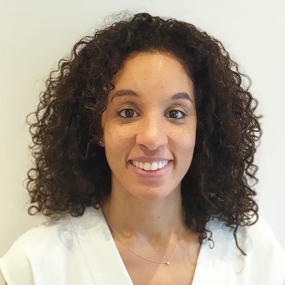My advice to women in research roles

Dr Amaki Sogbodjor is a Locum Consultant Paediatric Anaesthetist. Here, she gives advice to women considering a career in anaesthetic research.
Those conducting research on behalf of the public must represent the population it serves. Researchers have an obligation to improve equality in the field because we often work in partnership with the NHS and use public funds to finance our work. Inclusivity is mutually beneficial. Academia will reap the benefits if more groups are encouraged to partake in research – bright minds hail from all walks of life bringing with them a wealth of important experience.
However, women are under-represented in research. Journal editorial boards and conference programmes offer a particularly convincing insight into this. Imposter syndrome can be a symptom of under-representation of women as it cultivates feelings of not belonging. I would argue that having visible females involved in research is what really matters.
My advice to women starting out in research is to find a mentor – not necessarily female but someone who is willing to have frank, open discussions and has an understanding of the additional pressures women can face.
I have no doubt that having a female research supervisor, who was extremely successful in her field, spurred me on to pursue my own academic interests. I joined the RCoA as paediatric perioperative medicine research fellow in the Health Services Research Centre (HSRC) after my year of advanced paediatric training.
During my time there I was involved in the conception and set up of the Children’s Acute Surgical Abdomen Programme (CASAP), an ongoing national observational cohort study which focuses on the perioperative care of children having emergency surgery. It aims to identify which structures and processes of care influence outcome and serve as useful for quality improvement projects.
Prior to joining the HSRC to work on CASAP, my experience of research was limited to say the least. I had conducted a lab-based project as part of my intercalated BSc and had undertaken research in medical ethics and law as part of a Master’s programme (somewhat ironically about restrictions of liberty in the context of a pandemic) but clinical research was new to me. It has been a steep but rewarding learning curve. Anaesthesia as a clinical specialty provides instant gratification, by contrast, the research world works at a much slower pace.
When starting out in a new field, it is crucial to draw on the experience of those around you. Juggling a clinical career and family life while also trying to navigate the world of academia has its challenges but these will all have already been tackled by a predecessor. It took me a while to realise this but on broaching the subject with some of my research colleagues (male and female alike) it was clear that in our individual silos we were grappling with the same difficulties. We soon learnt that our productivity increased significantly when we pooled ideas and shared our own expertise. As a trainee used to short rotations it was refreshing to be able to develop long-lasting productive working relationships with my colleagues.
In addition to improving my research skills - such as protocol writing, navigating research ethics approval and data analysis – I have gained many softer interpersonal skills along the way, including effective collaboration through good communication, providing constructive feedback and public speaking.
For those contemplating research – I would say go for it.
Dr Amaki Sogbodjor
